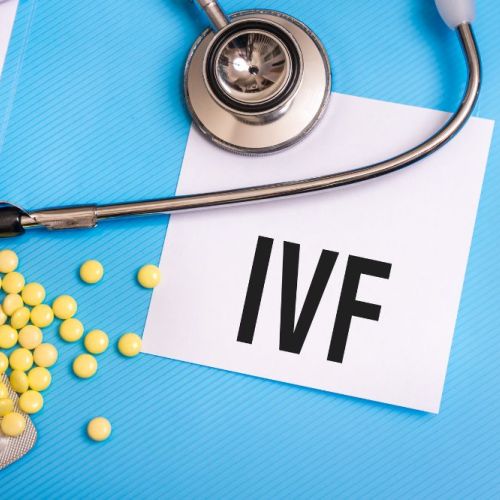How to Increase Fertility

There are many factors that can affect fertility. While some things are out of your control, there are some lifestyle changes you might make that could make a difference. While there’s no guarantee that making different lifestyle choices will result in pregnancy, it’s a good idea to give yourself the best possible chance of getting a good result from fertility treatment.
If you’re looking for information on how to increase fertility, your best option is to work closely with the experts at the Center for Reproductive Health. Their knowledgeable staff understands how important it is to have a successful pregnancy and they can help you understand what to focus on if you’re hoping to increase fertility.
Attaining or Maintaining a Healthy Weight
Being overweight or underweight can have an impact on your hormones and on your overall health. In women, any extremes in body weight can affect your menstrual cycle and interfere with ovulation. If you’re underweight, you may have irregular periods and if you do get pregnant, you’re at a higher risk of having a premature baby that has a low birth weight.
Be sure your diet includes foods that are rich in nutrients as well as foods that contain fiber and antioxidants. Avoid eating a lot of fast food or refined carbohydrates such as white sugar and white bread. Work with your healthcare provider if you need help gaining weight or losing weight.
Get Active
A sedentary lifestyle can affect your overall health and can also impact your fertility. Being proactive about including exercise in your daily routine can have a positive effect on fertility in both men and women. If you haven’t been exercising regularly, start slowly and consider activities that might be fun such as dancing or swimming. Work with your doctor to find out what type of exercise would be most beneficial for you and talk about how much exercise would be too much.
Break Bad Habits
When you weren’t thinking about trying to have a baby, you may have acquired some habits that could be harming your health. If you’re a smoker, it’s important to quit. Anything that’s consumed to excess may have a detrimental effect on fertility, so work on limiting the amount of alcohol or caffeine you consume. While it hasn’t been proven that caffeine has an impact on fertility, it makes sense to limit caffeine consumption to one or two cups of coffee or other beverages that contain caffeine each day. Alcohol may have an impact on fertility and may also be harmful to an unborn child if you do get pregnant.
Control Stress
If you’re feeling stressed or overwhelmed, it may hurt your fertility, while managing stress well may improve your chances of getting pregnant. Make controlling stress a priority. Learn what habits make you feel relaxed such as listening to music, going for a walk or meditating. Some people find that burning candles or journaling has a soothing effect on their mood.
Make an appointment to talk to the experts at the Center for Reproductive Health for help identifying what changes you can make that may have a beneficial effect on your fertility.
Eliran Mor, MD
Reproductive Endocrinologist located in Encino, Santa Monica, Valencia & West Hollywood, CA
FAQ
Reproductive endocrinology and Infertility is a sub-specialty of Obstetrics and Gynecology. In addition to managing medical and surgical treatment of disorders of the female reproductive tract, reproductive endocrinologist and infertility (REI) specialists undergo additional years of training to provide fertility treatments using assisted reproductive technology (ART) such as in vitro fertilization.
Reproductive endocrinologists receive board certification by the American Board of Obstetrics and Gynecology in both Obstetrics and Gynecology and Reproductive Endocrinology and Infertility.
In general, patients should consider consulting with an REI specialist after one year of trying unsuccessfully to achieve pregnancy. The chance of conceiving every month is around 20%, therefore after a full year of trying approximately 15% of couples will still not have achieved a pregnancy.
However, if a woman is over the age of 35 it would be reasonable to see a fertility specialist earlier, typically after 6 months of trying.
Other candidates to seek earlier treatment are women who have irregular menses, endometriosis, fibroids, polycystic ovary syndrome (PCOS), women who have had 2 or more miscarriages, or problems with the fallopian tubes (prior ectopic pregnancy).
Approximately 1/3 of the time cause for infertility is a female factor, 1/3 of the time a male factor, and the remaining 1/3 a couples’ factor.
At CCRH, we emphasize the importance of establishing a correct diagnosis. Both partners undergo a comprehensive evaluation including a medical history and physical exam.
Furthremore, the woman’s ovarian reserve is assessed with a pelvic ultrasound and a hormonal profile. A hysterosalpingogram (HSG) will confirm fallopian tube patency and the uterine cavity is free of intracavitary lesions. A semen analysis is also obtained to evaluate for concentration, motility, and morphology of the sperm.
Additional work up is then individualized to direct the best possible treatment option for each couple.
In vitro fertilization (IVF) is the process that involves fertilization of an egg outside of a woman’s body.
The process starts with fertility drugs prescribed to help stimulate egg development. In your natural cycle, your body is only able to grow one dominant egg, but with stimulation medication we can recruit multiple eggs to continue to grow. After about 8-10 days of stimulation, the eggs are surgically retrieved and then fertilized with sperm in a specialized laboratory. Fertilized eggs are then cultured under a strictly controlled environment within specialized incubators in the IVF laboratory for 3-5 days while they develop as embryos. Finally, embryos (or an embryo) are transferred into the uterine cavity for implantation.
Before deciding if IVF is the right choice, it’s important to sit down with an REI specialist to discuss available treatment options. For some people, other methods such as fertility drugs, intrauterine insemination (IUI) may be the best first choice treatment. At CCRH, we believe each individual couple is unique and not everyone needs IVF.
While not painful, the fertility medications may some side effects including headaches, hot flashes, mood swings, and bloating. The injection sites may also bruise.
Unfortunately, no. Many people think once they start IVF it’s a matter of time that they will be pregnant and have a baby. But according to national statistics per the Society of Assisted Reproduction (SART), on average 40% of assisted reproduction cycles achieve live births in women under age 35. The chances of success then continue to decrease with advancing age.
At CCRH, we employ only evidence-based interventions to ensure patient safety and optimal outcome. While we cannot guarantee a baby, we guarantee that you will receive the best, most advanced, personalized care to help you maximize your chance of a baby.
The average IVF success rate (success measured in live birth rate) using one’s own eggs begins to drop around age 35 and then rapidly after age 40. This is due to the decline in egg quantity and egg quality as a woman ages.
Our clinic’s success rate consistently beats the national average year after year.
Individual insurance plans often do not have any coverage for infertility treatments. If you have a group plan, you can call members services to see if they have coverage for infertility (including consultation/workup and IVF).
After your consultation with our REI specialist, one of our dedicated account managers with sit with you to go over the cost of treatment.




